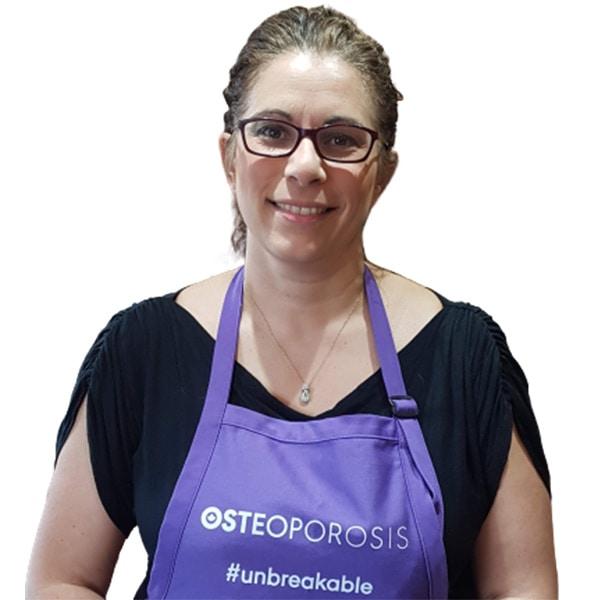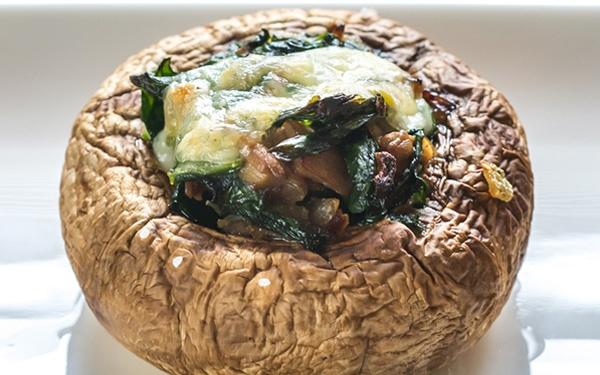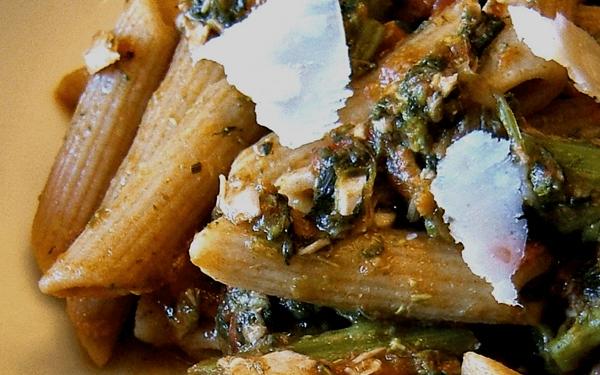
Fresh Extra Creamy Ricotta Cheese

Fresh Extra Creamy Ricotta Cheese
PREP TIME: 10 minutes
COOK TIME: 10 minutes
SERVES: 4
Fresh Extra Creamy Ricotta Cheese
PREP TIME: 10 minutes
COOK TIME: 10 minutes
SERVES: 4
Ingredients
You can make your own ricotta cheese and serve it warm with a drizzle of your favourite honey to enjoy with some fresh bread or crostini. Use it in baked goods or cooking, it is an easy way to use up some milk lingering in the fridge.
- 4 cups (1 L) milk
- 1 cup (250 mL) 35% whipping cream
- 1/2 tsp (2 mL) salt
- 3 tbsp (45 mL) fresh lemon juice
Preparation
In a saucepan, bring milk, cream and salt to a gentle simmer over medium-high heat, stirring occasionally. Stir in lemon juice, reduce heat to low, stirring for about 3 minutes or until small curds are visible. Let stand for about 10 minutes for curds to form.
Ladle into a cheese cloth-lined sieve, reserving whey if desired for another use. Let ricotta stand for 10 minutes to drain.
Makes about 1 cup (250 mL).
Ingredients
You can make your own ricotta cheese and serve it warm with a drizzle of your favourite honey to enjoy with some fresh bread or crostini. Use it in baked goods or cooking, it is an easy way to use up some milk lingering in the fridge.
- 4 cups (1 L) milk
- 1 cup (250 mL) 35% whipping cream
- 1/2 tsp (2 mL) salt
- 3 tbsp (45 mL) fresh lemon juice
Preparation
In a saucepan, bring milk, cream and salt to a gentle simmer over medium-high heat, stirring occasionally. Stir in lemon juice, reduce heat to low, stirring for about 3 minutes or until small curds are visible. Let stand for about 10 minutes for curds to form.
Ladle into a cheese cloth-lined sieve, reserving whey if desired for another use. Let ricotta stand for 10 minutes to drain.
Makes about 1 cup (250 mL).

RECIPE TIP
If you would like to double the recipe, to retain this rich and creamy consistency, simply make another batch separately.
For best results, be sure not to use microfiltered milk for the recipe.
DID YOU KNOW?
Bone is a living tissue, that is constantly renewing and repairing itself from everyday wear and tear. However, many nutrients are absorbed less effectively as we age. Try the Nutrient Calculator to see if you are getting enough bone building nutrients in your daily diet.

Emily Richards
Nutritional Information
-
Calories420
-
Fat18g
-
Saturated8g
-
Trans0.5g
-
Cholesterol105mg
-
Sodium1090mg
-
Fibre4g
-
Potassium≥850mg
-
Carbohydrate35g
-
Sugars12g
-
Iron2.5mg
-
Vitamin A400 µg
-
Vitamin B122 µg
-
Vitamin C89mg
-
Vitamin D1.5 µg
-
Vitamin K59 µg
-
Calcium300mg
-
Protein30g
-
Zinc4.5mg
-
Magnesium60mg
Osteoporosis Canada’s position on nutrition for healthy bones focuses on calcium, vitamin D, protein, magnesium and vitamin K while stressing a well-balanced diet which includes fiber and whole grains, vitamins and minerals and protein.
RECIPE TIP
If you would like to double the recipe, to retain this rich and creamy consistency, simply make another batch separately.
For best results, be sure not to use microfiltered milk for the recipe.
DID YOU KNOW?
Bone is a living tissue, that is constantly renewing and repairing itself from everyday wear and tear. However, many nutrients are absorbed less effectively as we age. Try the Nutrient Calculator to see if you are getting enough bone building nutrients in your daily diet.
Nutritional Information (Per Serving)
-
Calories420
-
Saturated8g
-
Fat18g
-
Trans0.5g
-
Cholesterol105mg
-
Sodium1090mg
-
Fibre4g
-
Potassium≥850mg
-
Carbohydrate35g
-
Sugars12g
-
Iron2.5mg
-
Vitamin C89mg
-
Vitamin B122 µg
-
Calcium300mg
-
Protein30g
-
Vitamin A400 µg
-
Zinc4.5mg
-
Vitamin D1.5 µg


